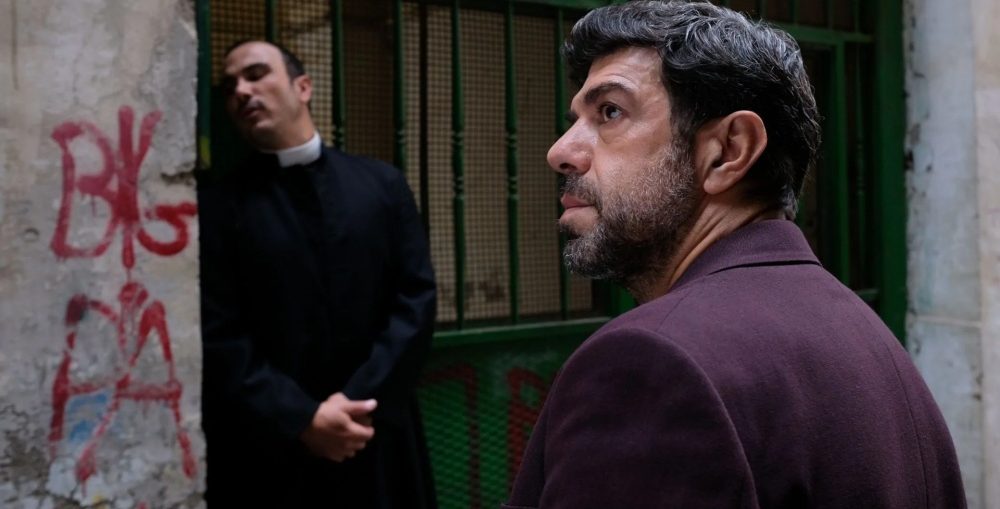
Naples in all its splendor - Nostalgia - Marina's review
(from Cannes Luigi Noera and Marina Pavido - The photos are courtesy of the Cannes Film Festival)
Naples. A city which is strongly missed. Especially when it comes to their hometown, from which we have been away for many and many years. These strong feelings towards the Neapolitan capital were staged by Mario Martone in his feature film Nostalgia, based on the novel of the same name by Ermanno Rea and in the running for the much sought-after Palme d’Oro al Cannes Film Festival 2022.
The story staged, therefore, is that of Felice Lasco (personified by Pierfrancesco Favino), born in Naples, just, in the Sanità district and who has lived abroad for forty years, where he made his fortune as a builder. He returned to his hometown in order to visit his elderly mother, Felice will be overwhelmed by childhood memories and, in particular, from the relationship with his best friend, Oreste (said by all O ’Malommo), with whom she suddenly broke off all contact years before after a dramatic event in which a man lost his life.
Nostalgia - third chapter of the trilogy dedicated to the city of Naples, which also includes The Mayor of the Rione Sanità (2019) e Here I laugh (2021) - sees in the splendid city not only a suggestive location, but also an important lead actress. The images of Pierfrancesco Favino wandering around the alleys of the district where he grew up, going up towards Capodimonte, or in which he admires the panorama that can be seen from the terrace of his house are among the most precious moments of this feature film. Moments in which the love felt not only by Felice Lasco is palpable, but also by Mario Martone towards a city that, despite having seen so many over the years, it has always kept its charm intact.
Felice, and Naples, slowly regain its identity. His accent initially reveals the many years he spent abroad, then, slowly, the Neapolitan dialect returns with all its many nuances. Interesting, about that, the work done by Pierfrancesco Favino, not only, just, regarding its cadence, but also for the numerous register changes without ever going over the top or being excessive. The interpreter is thus able to give us unforgettable moments that see their climax especially in the scenes with his mother (particularly tender, about that, the moment in which the man bathes the elderly woman).
Despite the many potentials, however, Nostalgia in some moments it makes you turn up your nose. This mainly concerns the relationship between the protagonist and his friend of the past and how the same evolves. Solutions that appear hasty on the screen and that would have needed more in-depth analysis make this important film by Martone lose some points, which in many ways reveals itself, at the same time, an extremely touching and refined work. A living work, painful and passionate, fruit of a great love (that of the director for his city) and the strong desire to tell through wounded images that are never completely healed.
marina fears
